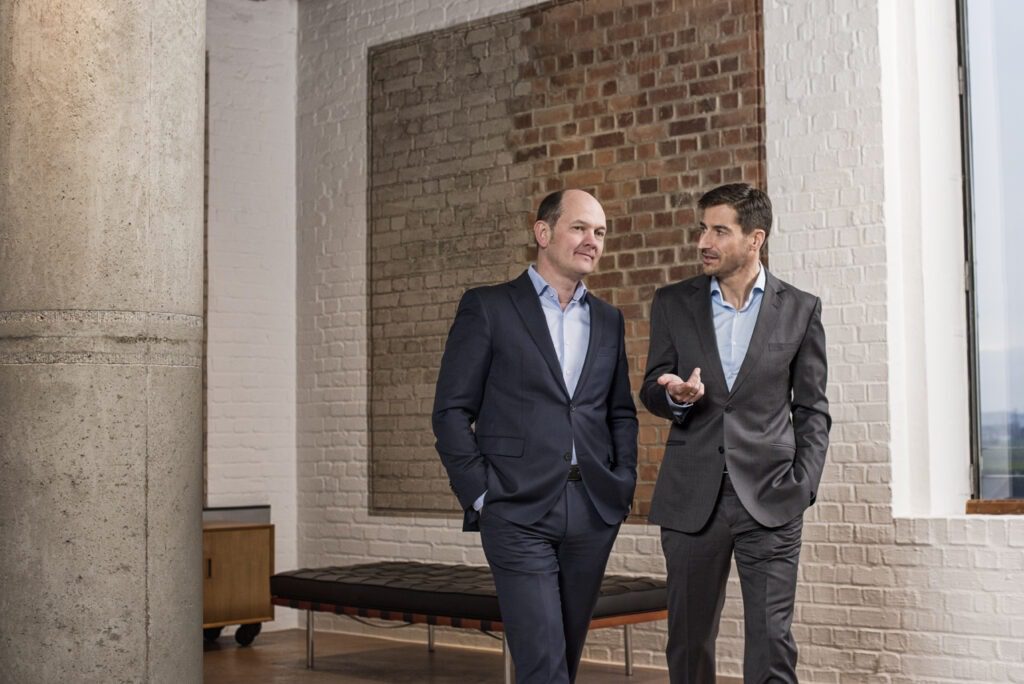The U.S. Legal System and the German Continental Law System couldn’t be more different in one aspect. This is the matter of discovery. Under German Law there are only very limited instruments for a document production and moreover German courts a very reluctant to allow a “fishing expedition”. Under German civil proceedings the parties shall present the facts and evidence that are favourable to them (“Beibringungsgrundsatz”). In principle, German civil courts do not have the task to investigate the facts.
Although the German courts affirm that the burden of presentation and proof which is normally incumbent on the claimant may be altered in special circumstances. This goes especially for cases which are mitigated by the fact that in view of the different levels of information of the contracting parties one party has no possibility to ascertain the relevant circumstances because they stem from the sphere of perception of the other party. In these cases, in accordance with good faith the party may be obliged to provide information describing details of the relevant circumstance to their sphere of perception (“Sekundäre Darlegungslast”).
However, as matter-of-fact parties are often unable to get access to certain documents supporting their case, because the required documents are in possession of the opponent or a third party. Insofar it is not surprising that especially in international arbitration parties try to get access to documents (the “smoking gun”) via the support of U.S. litigation pursuant to 28 U.S.C. §1782 (“Section 1782”).
A ground-breaking decision
The U.S. Supreme court has now ruled by its long-awaited decision dated 13 June 2022[1] that such discovery in support of private commercial and arbitration proceedings is not allowed. The use of Section 1782 for state courts remains unaffected.
What is the background?
By way of Section 1782 U.S. District courts may order to give testimony or statement or to produce a document or other thing for use in a proceeding in a “foreign or international tribunal”, including criminal investigations conducted before formal accusation. The Law says: “The order may be made pursuant to a letter rogatory issued, or request made, by a foreign or international tribunal or upon the application of any interested person.”
Whereas the question of whether Section 1782 is applicable on administrative and quasi-judicial proceedings abroad was answered in Intel Corp. v. Advances Micro Devices, Inc.[2] the matter of applicability in international arbitration remained open.
Semantic demarcation
The U.S. Supreme court unanimously denied the applicability of Section 1782 by its decision dated 13 June 2022. The court uses the classical methods of statutory interpretation to justify its decision. The main question at hand is how the phrase “foreign or international tribunal” in Section 1782 is to be understood and whether it also includes non-governmental entities.
Key facts
There is one underlying legal question to both cases. They nevertheless differ in their factual circumstances.
In the first case the ZF Automotive US, Inc. sold two business units to Luxshare, Ltd. Luxshare later claimed that ZF Automotive a Michigan based company had withheld important information about the business units which led to Luxshare overpaying for the deal.
The parties had agreed in their contract that disputes shall “exclusively and finally settled by three (3) arbitrators in accordance with the Arbitration Rules of the German Institution of Arbitration e.V. (DIS).” The parties agreed on Munich as the venue for arbitration and German law as applicable and that each party is allowed to name one arbitrator who are then choose a third one.
Luxshare filed on their behalf that in accordance with Section 1782 ZF is supposed to produce evidence. The U.S. District Court for the Eastern District of Michigan granted the request and ZF and some of its officers were subpoenaed. ZF reacted by moving to quash the subpoenas augmenting that those were void because DIS was not an “foreign or international tribunal” within the meaning of Section 1782.
The factual circumstances of the second case were as the following: A Lithuanian bank (Snoras) and a Russia based investors interest company were the Parties. Those choose “an ad hoc arbitration in accordance with Arbitration Rules of the United Nations Commission on International Trade Law (UNCITRAL)”. The proceedings were initiated because of a bilateral treaty between Russia and Lithuania. The Russian fund filed a Section 1782 application in federal court in order to attain information from a temporary administrator of the bank who was the CEO of a New York based consulting firm.
The issue at hand in this case was whether the ad hoc arbitrational panel was an “foreign or international tribunal” in the sense of Section 1782. The district court granted discovery. The second circuit affirmed the decision.
Legal analysis
The U.S. Supreme Court starts its opinion by analysing the text of the statute. It states that in hindsight of its linguistic meaning the word “Tribunal” can be associated with governmental and nongovernmental entities. The court sheds light into the dark by weighing in the context of the law concerning the adjudicative “foreign” and bringing in the argument that “is a word with potential governmental or sovereign connotations, so “foreign tribunal” more naturally refers to a tribunal belonging to a foreign nation than to a tribunal that is simply located in a foreign nation.”
Next it ways in the word “International” and concludes that that it is intended to be applicable in situations when two or more nations are disputing.
In the next step of its analysis SCOTUS dissects the statute’s history and sets it in a systematic comparison to the Federal Arbitration Act (FAA). Within a systematic scope in relation to the FAA the court rules that the application on private bodies would surpass the limitations set by it because it only allows the arbitration panel a discovery proceeding.
It also rules that an interpretation based on the spirit and purpose which is stated as being “the rendering of assistance to foreign courts and quasi-judicial agencies” which leads to the negation of the application of Section 1782 on non-governmental bodies. Next it states that Congress’ purpose of passing the law was to boost international “comity” because of reciprocal help in matters of provability. This aim cannot be reached by broadening the laws reach to private actors.
The reasoning shows that the U.S. Supreme Court requires that a “governmental or intergovernmental adjudicative body” is given. Neither the arbitration tribunal under DIS rules (ZF Automotive) nor the ad hoc investment arbitration under UNCITRAL rules (AlixPartners) constitute governmental or intergovernmental adjudicative body. In ZF Automotive this is very clear, given that private parties appointed without any state influence a private tribunal and conducted the arbitrations under (private) DIS rules.
In the AlixPartners case this was a bit more complicated because the ad hoc arbitration was under UNCITRAL rules, it involved a state as a party and it based on a bilateral investment treaty between Russia and Lithuania. Nevertheless, even in AlixPartners the tribunal as such was a private one, and the judicial body was not a governmental authority.
Outlook
The U.S. Supreme court’s decision will have an impact on strategic considerations of parties in international arbitration.
If a party intends a discovery, it must agree upon such rules already in the terms of reference. A party in international private arbitration cannot longer rely upon the support of an U.S. district court.
If a discovery shall be avoided, the party wishing to avoid a discovery, should insist already during the contract negotiations on a venue outside the United States and should avoid a discovery by reference in the procedural rules. Often the IBA Rules on the Taking of Evidence[3] (“IBA Rules”) are declared applicable. Under the IBA Rules a limited discovery is foreseen.
If the parties want the IBA Rules to be applicable in a dispute about their contract they must agree in a separate clause.[4] Beyond that, the parties and tribunal can declare the IBA rules partly or completely applicable at the time of the beginning of the arbitration or after this stage.
By making those rules applicable the arbitration tribunal may order each party to provide or make their best efforts to provide testimonies yet not offered. Article 9.2 hinders the misuse of the IBA Rules in cases of impossibility of obtaining evidence, lack of importance, disproportionality of procurement effort, commercial or technical confidentiality, political or institutional sensitivity or considerations of procedural economy. Article 9.3 states the inadmissibility of illegally attained evidence.
The U.S. Supreme Court decision might even have positive effects on the efficiency of international arbitration. A discovery under Section 1782 was often associated with high costs, inefficiency, and a substantial delay.
************
[1] ZF Automotive US, Inc. v. Luxshare, Ltd., 596 U.S., 11 (2022).
[2] Intel Corp. v. Advanced Micro Devices, Inc. , 542 U.S. 241, 258 (2004).
[3] IBA Rules on the Taking of Evidence in International Arbitration adopted by a resolution of the IBA Council 17 December 2020 International Bar Association
[4] Example: “In addition to the [[•] [institutional, ad hoc or other rules chosen by the parties,]] [t]he parties agree that the arbitration shall be conducted according to the IBA Rules of Evidence as current on the date of [this agreement/the commencement of the arbitration.”
************
COMINDIS is a specialized Boutique Law firm in dispute resolution, insurance and compliance with a focus on plant engineering. If you need legal support in your project please approach us.
Dr. Eric Decker Dr. Ingo Kühl
COMINDIS Partnerschaft von Rechtsanwälten mbB
Steinstraße 27
40210 Düsseldorf
Germany
T +49 211 542249 20
F +49 211 542249 29
eric.decker@comindis.com
ingo.kuehl@comindis.com
www.comindis.com

